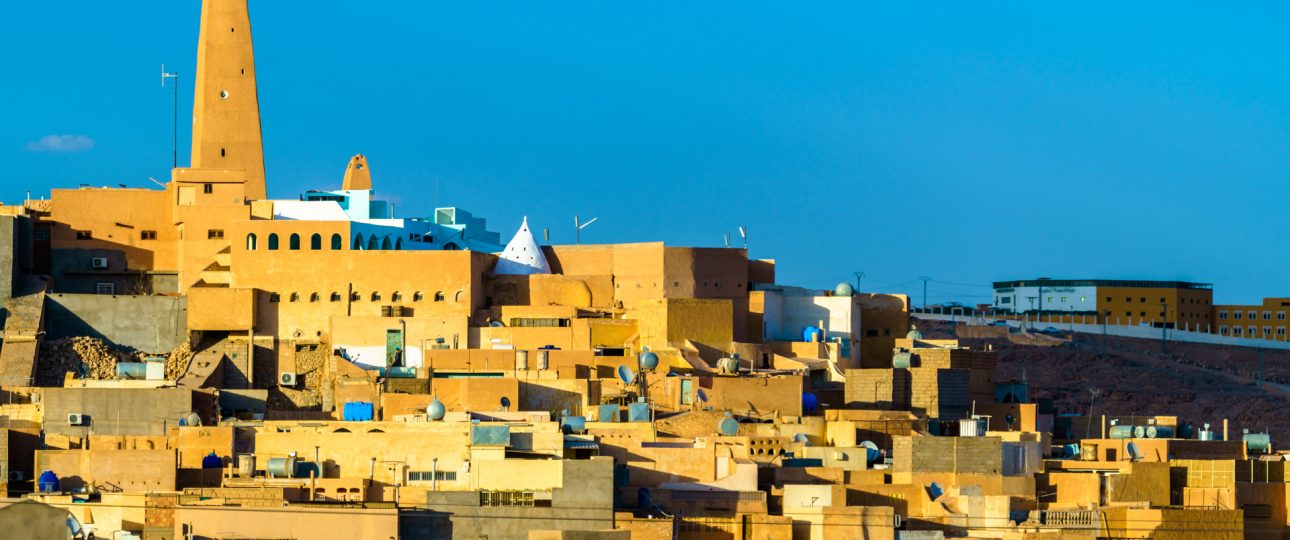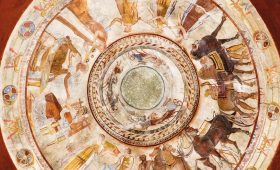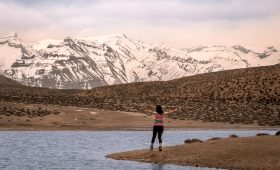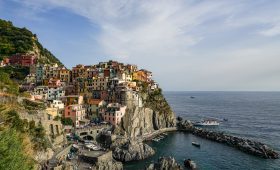Discovering Ghardaïa: A Unique Destination in Algeria
Ghardaïa, located in northern-central Algeria, offers a fascinating blend of history, architecture, and culture. This city, part of the M’zab Valley, is a UNESCO World Heritage Site known for its distinctive urban planning and cultural heritage. Whether you’re interested in history, architecture, or cultural experiences, Ghardaïa provides a rich tapestry of experiences to explore.
The Architectural Marvels of Ghardaïa
Ghardaïa is renowned for its unique architecture, which dates back to the early 11th century. The city is part of a group of five fortified towns in the M’zab Valley, each designed with meticulous attention to community living and defense. These towns, known as “Kosars,” include Ghardaïa, Melika, Beni Isguen, Bou Noura, and El Atteuf. The architecture features cubical buildings with earth-colored facades, designed to keep interiors cool during the hot desert summers. The towns are strategically built on rocky outcrops, providing a fortress-like appearance with mosques at their centers, serving both religious and defensive purposes.
The Oasis of M’zab Valley
The M’zab Valley is a striking contrast to the surrounding Sahara Desert, with its lush palm groves and gardens. The Mozabite people have maintained these oasis settlements for centuries, using a sophisticated irrigation system to manage water resources. This system includes tunnels that harvest rainwater and distribute it equitably to the gardens, ensuring sustainability in an arid environment. A stroll through these palm groves offers a serene escape, with the gentle rustling of leaves and the scent of blossoms enhancing the experience.
Experiencing Mozabite Culture
The Mozabite people, who have inhabited the region for centuries, have preserved their unique cultural traditions. Despite modern influences, they remain deeply connected to their roots. Visitors can engage with the local community to learn about their customs, participate in traditional music and dance, or try their hand at pottery-making. The Mozabites are known for their hospitality and are eager to share their rich heritage with visitors.
When to Visit Ghardaïa
Ghardaïa experiences a hot desert climate, with extreme temperatures in the summer and cooler winters. The best time to visit is during the spring (March to May) or autumn (September to November) when the weather is more moderate. Springtime brings vibrant colors to the valley as the desert blooms, while autumn offers comfortable temperatures for exploring the city and its surroundings.
Getting to Ghardaïa
Reaching Ghardaïa requires some planning, but the journey is rewarding. The city is served by Ghardaïa Noumérat-Moufdi Airport, with flights from major Algerian cities. From the airport, taxis or local buses can take you to the city center. Alternatively, Ghardaïa is accessible by bus from cities like Algiers, Oran, and Tamanrasset, offering a scenic view of Algeria’s diverse landscapes.
Exploring Ghardaïa and Its Surroundings
Ghardaïa is compact and easily navigable on foot, allowing you to explore its unique architecture and vibrant culture at your own pace. For local transportation, shared taxis and horse-drawn carriages, known as calèches, are available, adding to the city’s charm. For those interested in exploring beyond the city, guided tours into the Sahara Desert offer an opportunity to experience the vast desert landscapes and spend a night under the stars.
Ghardaïa is a destination that offers a unique blend of history, culture, and natural beauty. As you plan your visit, consider the climate and travel logistics to make the most of your experience in this remarkable part of Algeria.




